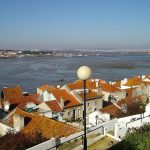Novo Banco inquiry starts Tuesday
A public inquiry undertaken by a parliamentary commission into management practices and losses at Novo Banco will begin on Tuesday.
The inquiry will last 120 days and will examine losses and the reasons for those losses suffered by the bank which obliged it to draw on funds from the Resolution Fund.
The results of the inquiry which will take four months, should be known by April before the next cash injection is expected from the Resolution Fund according to the newspaper Público.
The news arises after a notice about the constitution of the new commission of inquiry was published in the parliamentary circular, Diário da Assembleia da República on Wednesday.
Parliament has already approved the inquiry into the bank on 25 September, after agreement was reached to a motion from the ruling PS, left-wing Bloco and Iniciativa Liberal parties. The process was then temporarily put on ice as MPs focused on work to do with the State Budget for 2021.
But even though the commission officially begins its business next week, hearings from the main figures at Novo Banco will only start next year. Público has learnt that the hearing will be presided over by the opposition PSD party, as was the case with the inquiry into the management of State-owned bank Caixa Geral de Depósitos (CGD).
Taking into account the goal of the commission of inquiry, former managers and directors of BES (the collapsed bank from which Novo Banco was created in 2014), the administration of Novo Banco and other management figures, senior figures from the Bank of Portugal, the Resolution Fund and the Government will all be called to the hearings over the next few months.
The Pre-period
The Commission will examine the period leading up to the winding up of Banco Espírito Santo (BES) and the setting up of Novo Banco and try to ascertain and evaluate if the management practices of BES directors and managers may have led to losses and variations in value on tangible assets held by the bank, such as properties and land, and as a consequence justified by the amounts paid by the Resolution Fund to Novo Banco.
It will also look to see if the behaviour of the Bank of Portugal in supervising BES in the period leading up to its collapse, as well as the process that led to parameters of the resolution being defined, namely in defining what and how much were the assets and losses that were on the balance sheet of Novo Banco when it was set up, including how they were accounted and valued by the consultants PwC and if this audit was adequately done.
Period before the Novo Banco sale to Lone Star
The commission will evaluate the retransfer of Novo Banco senior bonds (the highest priority and, therefore, the lowest risk) to BES in liquidation and their implications for the financing cost for Portugal and for the defence of the public interest.
The processes and conditions of sale to Lone Star.
Ascertain if the Novo Banco sale contract and other contracts signed regarding this sale in which the State is, directly or indirectly, saddled with, were correctly and honestly negotiated, and apportion respective technical and political responsibilities.
Post-sale period
Evaluate the actions of the Government, Bank of Portugal, the Resolution Fund and the Supervisory Commission as public decision-makers and the mechanisms responsible for supervising the management of Novo Banco.
Analyse the actions of the boards in Novo Banco, including the administrative and executive boards, supervisory and audit entities, with particular emphasis on evaluating the sale of assets that led to cash injections from the Resolution Fund.
Analyse the Novo Banco Special Audit report from 31 August 2020 to evaluate the independence of the auditor, as well as examining the results of the aforementioned audit.
Protecting the public interest
Evaluating the actions of Governments, the Bank of Portugal, Resolution Fund and Supervisory Commission in defence of the public interest.
The Resolution Fund
To date, the fund headed by Máximo dos Santos has already injected €3Bn into Novo Banco in that according to the capital contingency agreement negotiated at the time of the bank’s sale to Lone Star, a total of €3.8Bn was available that could be drawn upon by Novo Banco to 2026.
Today, however, there is uncertainty as to what could happen next year taking into account that Parliament put the brakes on any fresh capital injections until the outcome and results of a second public audit (the first being completed by Deloitte and handed over in August this year) compacted by the Audit supervisory authority (Tribunal de Contas) which will also begin at the start of 2021.










